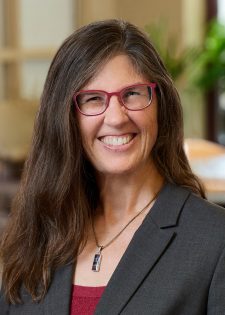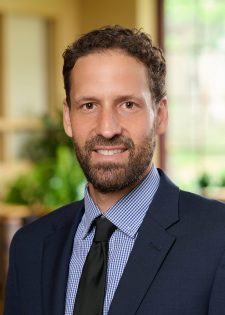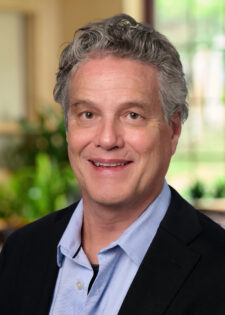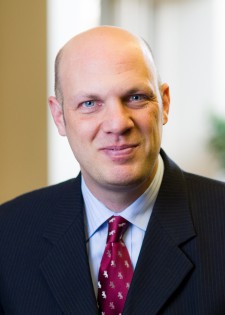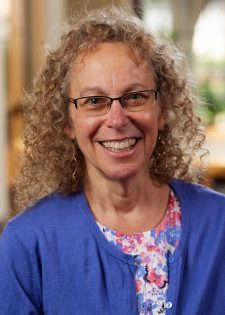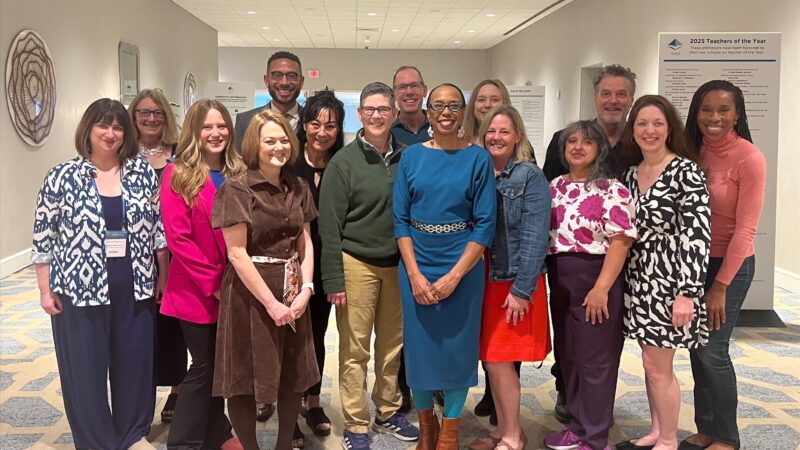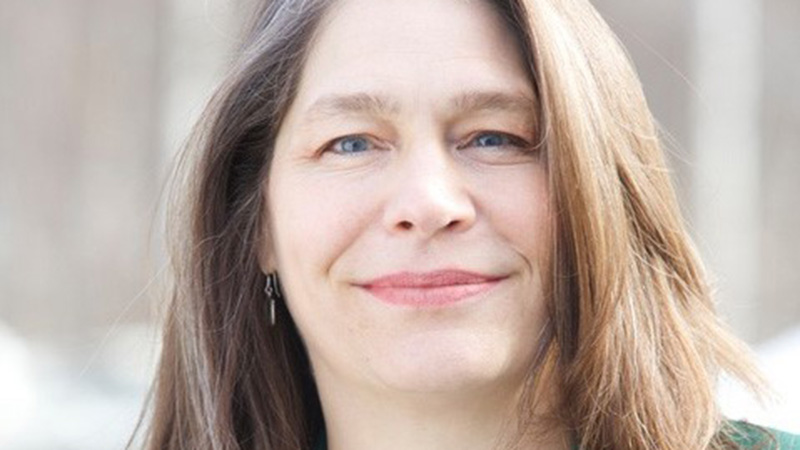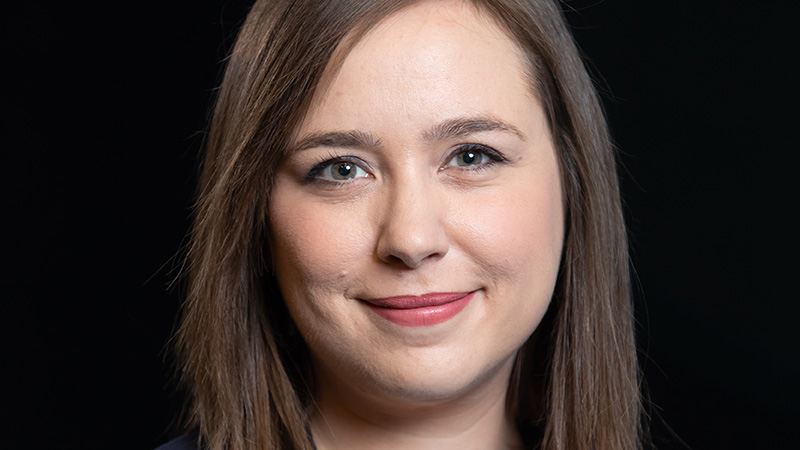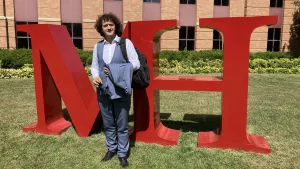
Dr. Agron Bajraktari, rector of the University of Applied Sciences in Ferizaj, Kosovo, visited Mitchell Hamline earlier this fall.
Mitchell Hamline hosted Dr. Agron Bajraktari, rector of the University of Applied Sciences in Ferizaj, Kosovo, earlier this semester as a next step toward establishing a possible collaboration between the schools.
“I think it’s very important to have this connection,” said Bajraktari, in an interview. “We want to learn the best practices from your law school.”
The connection between the institutions is Professor Kim Vu-Dinh, who has been working with the university in Kosovo since her previous faculty post in Arkansas. She was named a Fulbright specialist in 2019 when the University of Applied Sciences was a newly formed university in a nation that was barely 10 years old. Vu-Dinh worked with faculty and academic administration in helping them explore structures that would give students hands-on learning opportunities and exposure to future employers in the private sector while generating income for the fledgling school.
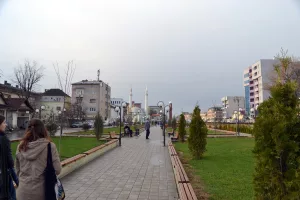
Ferizaj, Kosovo
“This institution works extensively with applied sciences and engineering, and it has an interest in growing its curriculum to help Kosovars understand U.S. intellectual property law, and how U.S. tech transfer offices work,” said Vu-Dinh. “Part of helping Kosovo grow economically is to get more people there with rich understandings of things that might help them grow into markets outside their borders.
“Mitchell Hamline is an important place for that kind of law and others.”
Vu-Dinh also notes the two schools have kindred connections in their shared goals of using experiential learning to give students the skills they need to do the jobs they’ll have upon graduation. “I think having a relationship between our schools would provide perspective for our students and theirs.”
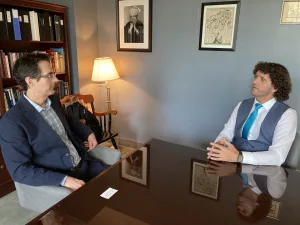
Dr. Agron Bajraktari (right), rector of the University of Applied Sciences in Ferizaj, Kosovo, met with Mitchell Hamline interim President and Dean Jim Hilbert during his visit this fall. He also met with students and several other faculty members.
Bajraktari met with interim President and Dean Jim Hilbert during his visit to Mitchell Hamline, as well as with students currently in the Economic Inclusion Clinic. He also spoke with other faculty, including Professor Forrest Tahdooanippah from the Intellectual Property Institute and Professor Mark Edwards, whose scholarship has focused on transitional justice and Soviet Eastern Europe.
Vu-Dinh is working with Edwards to create a transitional justice course about the region, covering the period from the 1990s, when the region was at war, to the present.
The professors hope the proposed course—which they anticipate would be available to both blended and in-person students—will become one of many courses in the study of transitional justice, a field of law focused on the development of political and legal rights following large scale violations of human rights, such as war.
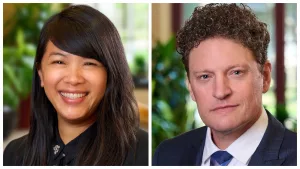
Professors Kim Vu-Dinh and Mark Edwards
Edwards and Vu-Dinh also hope the student demand for their course will enable them to teach a follow-up study course in Kosovo, where students would be able to engage in conversations with the members of the Supreme Court of Kosovo and visit prisons and privatization courts as well. Already, students in Vu-Dinh’s Economic Inclusion Clinic are working remotely with schools from Kosovo as clients, helping one school explore best practices in setting up U.S.-styled tech transfer offices. Students will work with another school next semester to explore and understand the potential for U.S.-based social impact funding and its legal requirements under U.S. law.
“Your law school has a lot to offer,” added Bajraktari. “I hope this isn’t my last time to visit Minnesota.”
Mitchell Hamline faculty
The latest from Faculty in the News
Nonprofit Quarterly February 11, 2026
KAXE February 11, 2026
Star Tribune February 12, 2026
The latest faculty publications
Psychological Medicine. 2026;56:e16 January 14, 2026
The American Journal of Bioethics, 26(1), 41–43 January 14, 2026
Book February 1, 2026
The latest faculty headlines
Mitchell Hamline faculty showcase expertise at 2026 AALS Annual Meeting
From left: Miriam Itzkowitz, Laura Reilly ’94, Natalie Netzel ’15, Tressa Ries, Jared Mollenkof, Kaori Kenmotsu ’22, Carolyn Grose, Anthony Niedwiecki, Camille Davidson, Eleanor Frisch, Lynn LeMoine ’11, Hetal Dalal, Brad Colbert ’85, Leanne Fuith ’10, …
Mitchell Hamline welcomes Jessica West to faculty
Assistant Professor of Law Jessica West Joining the Mitchell Hamline faculty as an assistant professor of law, Jessica West combines a passion for student success with her experience as a practitioner to help law students build the skills they need for …
Eleanor Frisch joins legal writing faculty
Assistant Professor of Law Eleanor Frisch Having a strong sense of justice and being skilled at argumentation are what first led Eleanor Frisch (they/she) to a career in law, but it is a much deeper passion that has turned her now to teaching—a love fo …

